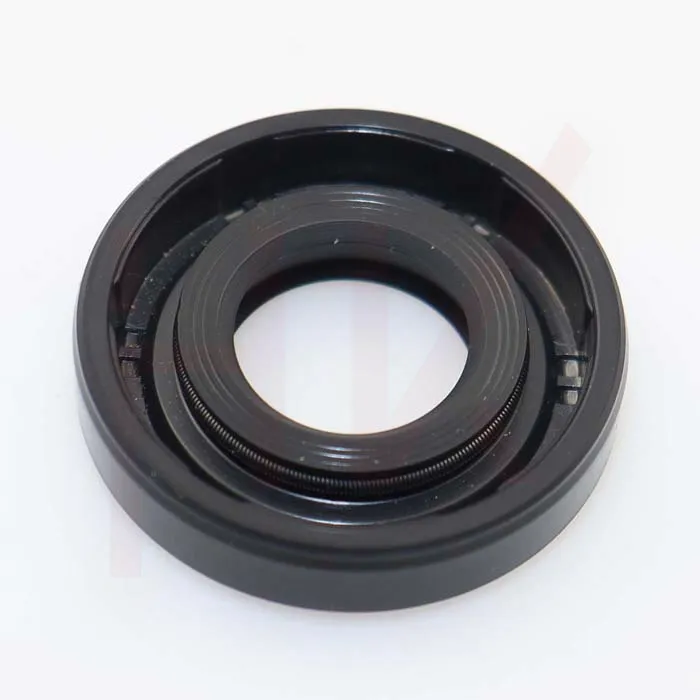Oct . 14, 2024 08:58 Back to list
cylinder oil seal
Understanding Cylinder Oil Seals Essential Components in Machinery
Cylinder oil seals, also known as rotary shaft seals or simply oil seals, are vital components in various mechanical systems, particularly in engines and hydraulic machinery. Their primary function is to prevent the leakage of oil or other fluids from the cylinder or other compartments, thereby maintaining the efficient operation of the machinery. In this article, we will explore the importance, functionality, and maintenance of cylinder oil seals, helping you understand why they are crucial in mechanical applications.
The Design and Function of Cylinder Oil Seals
Cylinder oil seals are typically made from materials such as rubber, polyurethane, or silicone, chosen for their durability and resistance to various chemicals and temperatures. The design of these seals usually includes a circular shape with a flexible lip that is pressed against the shaft or the cylinder wall to create a tight seal. This design not only prevents fluids from leaking out but also helps to keep contaminants such as dust and dirt from entering the machinery.
The working principle of an oil seal is relatively straightforward. When a shaft rotates within a cylinder, the seal's lip exerts pressure against the shaft, forming a barrier that retains the lubricant within the system. This action minimizes friction and wear between moving parts, ultimately extending the life of the machinery.
Applications of Cylinder Oil Seals
Cylinder oil seals are found in a variety of applications, including automotive, aerospace, manufacturing, and heavy machinery. In automobiles, for example, they are crucial for sealing engine components like crankshafts and camshafts. In hydraulics, they ensure that hydraulic fluid stays contained within the cylinders, thus maintaining optimal pressure and efficiency. Failure of these seals can lead to fluid leaks, which may result in loss of performance, increased operational costs, and potential damage to the equipment.
Common Issues and Troubleshooting
Over time, cylinder oil seals can wear out due to constant exposure to heat, friction, and chemicals. Some common signs that an oil seal may be failing include visible leaks, decreased performance, and unusual noises from the machinery. In many cases, the failure of oil seals can be attributed to improper installation, use of incompatible materials, or simply aging due to prolonged use.
When diagnosing issues with oil seals, it's essential to examine the surrounding components for any signs of wear or damage. Regular inspections can help identify potential problems before they escalate into major failures. If a seal needs to be replaced, it is crucial to choose the correct size and material to ensure compatibility with the application.
cylinder oil seal

Maintenance Tips for Cylinder Oil Seals
To prolong the lifespan of cylinder oil seals and maintain the efficiency of your machinery, consider the following maintenance tips
1. Regular Inspections Frequently check for signs of wear, leaks, or damage around the seal area. Early detection can prevent further damage to other components.
2. Proper Installation Ensure that the oil seal is installed correctly by following manufacturer specifications. Incorrect installation can lead to early failure.
3. Use Quality Materials Only use high-quality seals that are compatible with your specific machinery and fluids. Low-quality seals are more likely to fail, leading to costly repairs.
4. Avoid Overheating Excessive heat can degrade seals prematurely. Ensure that your machinery operates within the recommended temperature range and consider adding cooling systems if necessary.
5. Clean Environment Keep the area around the seals clean and free of debris. Contaminants can lead to seal damage and fluid contamination.
Conclusion
Cylinder oil seals play a critical role in the smooth operation of various machinery and equipment. Understanding their function, potential issues, and maintenance requirements can help prevent costly breakdowns and extend the life of your mechanical systems. Whether in automotive applications, industrial machinery, or aerospace, investing in quality oil seals and adhering to maintenance practices will ensure optimal performance and reliability. By prioritizing these often-overlooked components, you can help guarantee the longevity and efficiency of your equipment.
-
TCN Oil Seal Metal Ring Reinforcement for Heavy Machinery
NewsJul.25,2025
-
Rotary Lip Seal Spring-Loaded Design for High-Speed Applications
NewsJul.25,2025
-
Hydraulic Cylinder Seals Polyurethane Material for High-Impact Jobs
NewsJul.25,2025
-
High Pressure Oil Seal Polyurethane Coating Wear Resistance
NewsJul.25,2025
-
Dust Proof Seal Double Lip Design for Construction Equipment
NewsJul.25,2025
-
Hub Seal Polyurethane Wear Resistance in Agricultural Vehicles
NewsJul.25,2025
-
The Trans-formative Journey of Wheel Hub Oil Seals
NewsJun.06,2025
Products categories
















